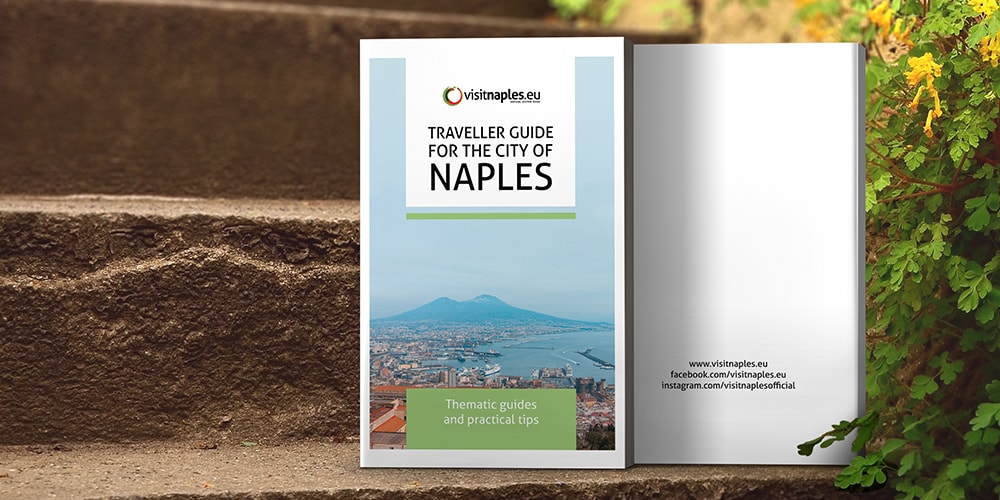Every 21st of March, the International Day of Poetry is celebrated worldwide, an opportunity to honor poetry as a means to express creativity, cultural diversity, and freedom of expression. The day was established by UNESCO in 1999, setting it on the beginning of the Spring season, even though this year the equinox falls on Monday, March 20th.
The beauty and relationship with art in Naples is inevitably reflected in poetry, precisely because of a visceral connection that goes way back. The city has always been a source of inspiration for poets, writers, and intellectuals, all enchanted by the eternal charm of the enchanted places of Naples. From the Gulf to Mount Vesuvius, from Maschio Angioino to Castel dell'Ovo: getting carried away by these magical places and approaching the art of poetry is almost a sweet consequence.
On the occasion of the International Day of Poetry, we have selected 5 poets from the city of Naples in particular, each of them very different from the others. Consequently, the 5 poems we have chosen to celebrate this magical day by turning it into a Neapolitan delight will also be diverse.
5. Salvatore di Giacomo - "Era de maggio"
Let's start with timeless magical verses dated back to 1885, written by the poet Salvatore Di Giacomo, one of the masters and promoters of Neapolitan song. We're talking about "Era de maggio", a song in Neapolitan language later set to music by Mario Pasquale Costa. It's a love song that tells the story of a relationship starting from the farewell between two lovers, which happened during the month of May. The two protagonists promise to meet again in the same places, still in May, to renew their love. The second part of the song focuses on the new encounter between the two.
.png)
Over time, there have been numerous reinterpretations of Era de maggio, with many artists paying tribute to Di Giacomo's masterpiece. Among the various artists, we remember Beniamino Gigli, Elvira Donnarumma, Roberto Murolo, and Sergio Bruni. Among recent versions, the one by Franco Battiato, dated 1999, is certainly worth mentioning. With Era de maggio, Di Giacomo revolutionized the Neapolitan song, representing the language in its most authentic form. All of this was done with the aim of demonstrating that even the humblest people were capable of nourishing delicate feelings. Doing it in Neapolitan was the ideal means to do so since it was essentially a language of the people.
4. Erri De Luca - "Due"
We continue our poetic journey, arriving in the present day with a contemporary poet like Erri De Luca. The poem we have chosen from his vast literary repertoire is "Due," contained in "Solo andata. Righe che vanno troppo spesso a capo" from 2014. In this incredibly moving text, De Luca celebrates the immense power of love and its capacity for action when two people come together. Lovers can transform and become everything and its opposite, as illustrated by the example of "wakefulness and sleep." They complete each other in their diversity like waters that can be sweet or salty, or like skies, diurnal or nocturnal depending on the moment.
Love completes, makes complete people who have no halves but are one, something inseparable that 'cannot be divided with anything'. It is therefore a unique union, a force capable of changing the name of the universe as well, as is written in the last verse which reads: 'When we are two, the universe will change its name too, it will become different'. In short, we are talking about an invitation to love and to love, showing how much good this unique value that completes our lives can do.
3. Aniello Califano - "O' surdato 'nnammurato"
If we ask around about Aniello Califano, probably in most cases the listener doesn't know who we are talking about. Yet, just a "Staie luntana da ‘stu core" and our mind travels and lights up, immediately revealing his identity. Califano, born in Sorrento in 1870, is one of the masters of Neapolitan song. Among his many masterpieces, he is credited with the origin of "O' surdato 'nnammurato", perhaps the greatest artistic success of Neapolitan music. We are talking about one of the most well-known and sung pieces in the history of southern Italian music, a symbol of pride for the whole city of Naples. The lyrics bring with them the tormented love between a soldier stuck on the front lines of World War I and his beloved who awaits him from a distance.
Over the years, numerous adaptations of the song have followed, although we here give greater importance to Califano's lyrics given their immense intrinsic poetic value. The interpretation of Anna Magnani in the film La sciantosa was very famous. Other artists who have sung the song include Claudio Villa, Massimo Ranieri, Enzo Jannacci; in short, many different artists but all united by their love for music and its poetic value. Such was the versatility of the song and the lyrics that it is still used today in the context of Napoli football, as it has become a symbolic chant for the blue fans. In short, we are talking about an eternal love letter, with the love of the soldier that will never end, since even after more than a century since its release, it is still sung and re-sung.
2. Eduardo De Filippo - "Si t’o sapesse dicere"
We conclude our quintet with a historic duo, two monuments of art and entertainment in Naples, perhaps the two greatest symbols of the city. The first of the two is Eduardo De Filippo, an immense Neapolitan personality. He was an actor, playwright, poet, and screenwriter, as well as the author of authentic theatrical masterpieces. Given his immense poetic-artistic greatness, we also choose and remember one of his poems, entitled "Si t'o sapesse dicere," perhaps one of the most beautiful in all Neapolitan poetry. It is almost a confession from the heart, a free and spontaneous declaration, which adds further beauty and delicacy to the already wonderful text. And perhaps it is precisely the simplicity that makes this poem unique.
.png)
De Filippo describes in the text the incredible power of love in a way that could not be better. Its imposing force is so great that it would be impossible to truly express it. In fact, this love has such a strong impact that the heart becomes so unable to write, it is "illiterate"; it becomes like a poet who cannot sing. The analogy drawn between a poet and a singer is also curious, especially because, ultimately, a song is often a poem that uses the precious ornament of music. The text is entirely in dialect, a combination of sounds and verses that evoke the true essence of Neapolitan in all its forms.
1. Totò - "A' livella"
Let's close with the other symbol of Naples, that is Antonio De Curtis, known as Totò. We are talking about the "prince of laughter", a man who, like De Filippo, has a thousand facets and infinite qualities that make him an all-around artist. In fact, besides being one of the greatest Italian actors of all time in both cinema and theater, Totò also used poetry as a means to express his art. His most famous poem is certainly "A' livella", which is undoubtedly the most beloved. It is a unique text that, with the usual lightness of the author, deals with a strong and tough topic such as death, offering important and still influential insights.

The message expressed in the poem is that beyond the professions and positions we hold in life, once we die we are all equal and human. In other words, death serves the function of a "livella", a tool used in the construction field. Everything is balanced, no one is superior to anyone, there is no competition. In this particular case, we find the dialogue between Don Gennaro, a poor garbage collector, and the arrogant Marchese, with the latter repeatedly humiliating the former. At the umpteenth attack, the humble and peaceful man reacts by inviting the Marchese towards reality, that is, trying to make him understand that now they are equal, there are no more socio-economic differences. Now that they are both dead, nothing matters anymore, there is lightness around them, and they are therefore released from the weight of existence.










Lascia un commento